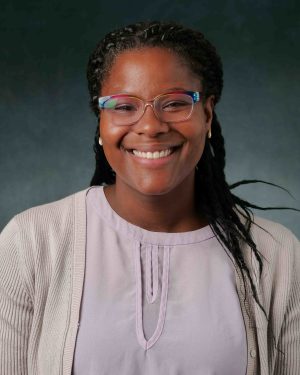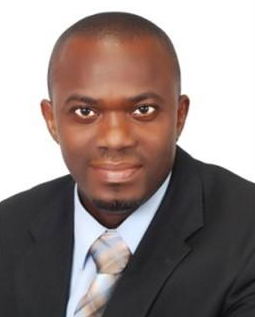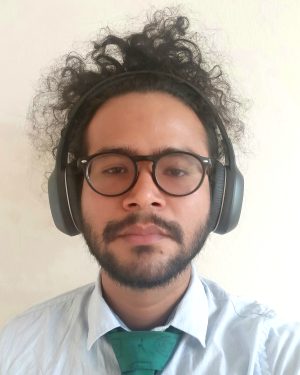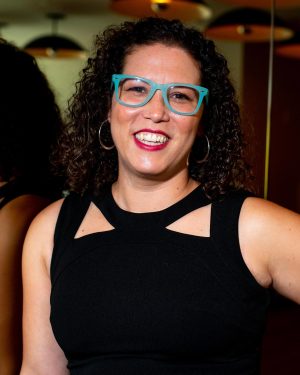ESA Selects 2022 EEE Scholars
November 10, 2022
For immediate release
Contact: Heidi Swanson, 202-833-8773 ext. 211, gro.asenull@idieh
The Ecological Society of America is pleased to announce the recipients of the 2022 cohort of the ESA Excellence in Ecology (EEE) Scholars for early – mid career ESA members who have achieved a Ph.D. within the last 20 years. The scholarship program seeks to support and elevate diverse scientists in the ecological community.
ESA selected four ecologists as EEE Scholars: Karen Bailey (Assistant Professor, University of Colorado Boulder); Aroloye Ofo Numbere (Lecturer/Researcher, University of Port Harcourt); Bruno Soares (Postdoctoral Researcher, University of Toronto-Scarborough); and Nikki Traylor-Knowles (Associate Professor, University of Miami).
“The 2022 EEE Scholars are conducting impactful research on a wide range of ecological communities and landscapes, and they are also active in several community engagement initiatives. These scholars are an incredibly driven and talented group and we are excited to see what they accomplish as they continue to advance in their careers,” said ESA President Sharon Collinge.
Scholars receive an award of $5000 over two years to support travel for a speaking opportunity at an ESA annual meeting or event, to support research or family/childcare, to host a research topic web event, and for publication fees in one of ESA’s open-access journals. ESA also provides peer support and a cohort experience among the scholars and its alumni.
“In order to meet the environmental problem-solving challenges of the Anthropocene, ecologists must elevate the human dimension by broadening participation and perspectives in the practice of ecology. The ESA Excellence in Ecology Scholars program, now in its second cohort, supports career development of diverse ESA ecologists and promotes innovative research in social–ecological systems to address global environmental concerns,” said ESA Diversity Committee Chair Carmen Cid.
2022 EEE Scholars:

Dr. Karen Bailey with the University of Colorado Boulder. Photo by Casey A. Cass/University of Colorado.
Karen Bailey – Assistant Professor, Environmental Studies, University of Colorado Boulder
Bailey is an interdisciplinary ecologist interested in justice and equity in ecology, human-environment interactions, climate change, and sustainable rural livelihoods. She received her B.A. from Princeton University and her M.S. and Ph.D. from the University of Florida in Ecology & Evolutionary Biology, and Interdisciplinary Wildlife Ecology & Conservation, respectively. Her research emphasizes the interactions between social justice, conservation, sustainability and human well-being. Her current projects focus on climate adaptation and human well-being in southern and East Africa, human-wildlife coexistence, barriers to entry in natural resource fields and just and equitable approaches to climate change adaptation.

Dr. Aroloye Numbere with the University of Port Harcourt. Photo by Clinton Nwokeke/Clinton Photos.
Aroloye Ofo Numbere – Lecturer/Researcher, University of Port Harcourt
Numbere obtained a B.Sc. in zoology from the University of Port Harcourt in 1996 and an M.Sc. in environmental management from the University of Science and Technology in Nigeria in 2006. He completed his Ph.D. in biology in 2014 at St. Louis University in Missouri. Numbere is a mangrove ecologist with more than 15 years of professional experience and since 2008 he has been a lecturer/researcher at the University of Port Harcourt, where he teaches ecology and environmental science courses. He studies the impact of urbanization, oil and gas exploration and invasive species on mangrove. He also studies seedling recruitment, agro-mangrove forestry, and DNA sequencing.

Dr. Bruno Soares with the University of Toronto-Scarborough.
Bruno Soares – Postdoctoral Researcher, University of Toronto-Scarborough, Department of Biological Sciences
Soares is a Brazilian aquatic ecologist, currently a postdoctoral researcher in the Department of Biological Sciences at the University of Toronto-Scarborough. He obtained his Ph.D in ecology in 2020 at the Universidade Federal do Rio de Janeiro, Brazil. His research focuses on the processes structuring aquatic communities and food webs, primarily on processes related to natural and anthropogenic environmental filters. He investigates how different land uses affect biodiversity in the Amazon and how community structure is linked to food web structure to better predict the effects of anthropization in the functioning of ecosystems.

Dr. Nikki Traylor-Knowles with the University of Miami.
Nikki Traylor-Knowles – Associate Professor in Marine Biology and Ecology; University of Miami; Rosenstiel School of Marine, Atmospheric, and Earth Sciences
Traylor-Knowles leads the Cnidarian Immunity Laboratory, which investigates the mechanisms of immune function in corals. She received her B.S. and M.S. in cell and molecular biology from Johns Hopkins University, her PhD. in biology from Boston University, and did a NSF Ocean Sciences Postdoctoral fellowship at Hopkins Marine Station, Stanford University. She is the founder and director of Black Women in Ecology, Evolution and Marine Science, a 501(c)(3) non-profit founded to help combat the isolation and abuse in STEM against Black women. She is an advocate for Black women in science and academia and is determined to disrupt the system by creating a new narrative and structure.
###
The Ecological Society of America, founded in 1915, is the world’s largest community of professional ecologists and a trusted source of ecological knowledge, committed to advancing the understanding of life on Earth. The 9,000 member Society publishes five journals and a membership bulletin and broadly shares ecological information through policy, media outreach, and education initiatives. The Society’s Annual Meeting attracts 4,000 attendees and features the most recent advances in ecological science. Visit the ESA website at https://ecologicalsocietyofamerica.org.
Follow ESA on social media:
Twitter – @esa_org
Instagram – @ecologicalsociety
Facebook – @esa.org